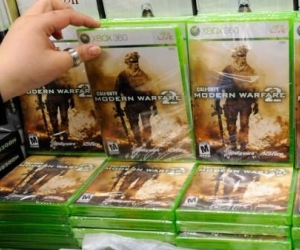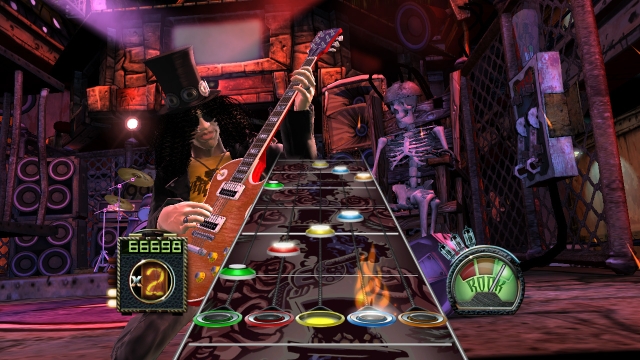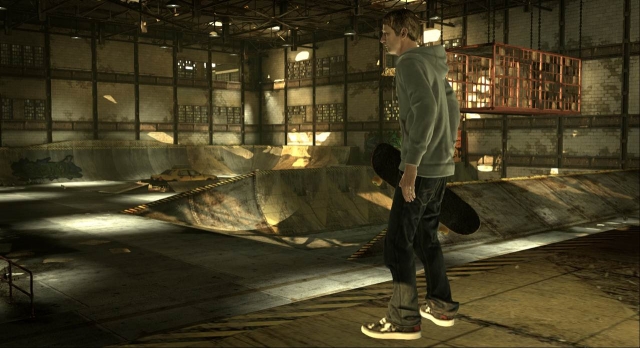Sequels Vs New IPs – A Call (of Duty) to Arms
 It has always been a forgone conclusion that every year, we can expect another instalment of sports titles like FIFA, Madden et al. and never bat an eyelid. It’s an expectation that has been in place for two decades. These games can’t really be described as sequels; they are merely roster updates with the odd new feature or tweak. Fans of these games know this, and judging by FIFA’s regular Top 10 spot in the sales charts, they are perfectly happy.
It has always been a forgone conclusion that every year, we can expect another instalment of sports titles like FIFA, Madden et al. and never bat an eyelid. It’s an expectation that has been in place for two decades. These games can’t really be described as sequels; they are merely roster updates with the odd new feature or tweak. Fans of these games know this, and judging by FIFA’s regular Top 10 spot in the sales charts, they are perfectly happy.
So what happens when non-sports games adopt a yearly release strategy? There have been annual instalments of certain non-sports franchises throughout the past few years, with the current generation seeing more sequels and spin-offs than ever before. We’ve seen new IP introduced at the beginning of the current generation’s lifespan, that in some cases are seeing their seventh iteration in as many years (and are still phenomenally successful, I might add; guess what series I’m talking about, and you can have a virtual cookie). Sure, it makes business sense to churn out annual instalments of a popular franchise, so long as it sells; but it seems that publishers are running the risk of alienating fans and bringing an early death to some genuinely good IPs, while also making it difficult for new IPs to flourish.
Look at a game such as Enslaved: Odyssey To The West. A flawed yet solid title that could have (and should have) done better considering its creative pedigree (developed by Ninja Theory, story written by Alex Garland, music composed by Nitin Sawhney, motion capture and voice acting by Andy Serkis). Unfortunately for publishers Namco Bandai, this promising IP ultimately became a flop sales-wise (in relation to other franchises), ensuring that a sequel is an unlikely outcome.

Blame it on the game, blame it on the lack of marketing, blame it on consumers, but in any case, the game is a poster child for the risk that developers and publishers alike take when introducing something new to an already overcrowded market. Why should publishers take a risk on something new, with the likelihood of less than stellar sales figures, when they can either release another Call of Duty or FIFA and sell millions? The gaming industry is incredibly over-saturated right now, with more and more games hitting the shelves each month. The period between the beginning of May to the end of September used to be the season where very little was released in terms of software, now though, I don’t think there is ever a “quiet” time in the modern release schedule.
There are simply too many games out there and things are unlikely to change in that regard. In addition, we find ourselves in a similar situation to the early 80s, where the gaming market was riddled with licensed games and arcade ports; non-original IPs that choked the life out of the industry and sowed the seeds of the legendary North American games industry crash of 1983. The industry has moved away from those dark times, at least in terms of sales. Creatively however, not so much, as we are barraged from all sides by endless sequels, remakes, yearly updates and licensed titles; those precious few surprises ignored by the masses, yet earning the adoration of a lucky few.
Now I’m not saying that we’re heading for another crash. This industry has grown exponentially since then, with games earning their rightful place as a respected entertainment medium alongside films and television. But there are certainly examples of consumers growing fed up with constant iterations. Activision is probably the highest profile publisher when it comes to regular sequels – The Guitar/Band/DJ Hero series had a meteoric rise to the top of gaming charts throughout the last decade, but after 12 individual instalments in this console generation alone; the rhythm games market plummeted from $1.4 billion in 2008, to $700 million in 2009. As a result, Activision pulled the plug on all Hero games, and have yet to announce any plans to return to the series any time soon.
The same thing has happened to the Tony Hawk IP: 14 games released since 1999, with 2011 being the first year without an instalment, a HD remake of earlier games will be released this year. Of course Activision have also seen the flip-side to releasing sequels in this manner, with at least 14 games released under the Call of Duty banner since 2003, with each new edition making more money than the last, for now it seems this is a trend that will continue.

I hasten to add that Activision aren’t the only publishers who adopt this business practice. Every major publisher over the past two-three decades has been rolling out sequels to happy customers the world over. The big three hardware manufacturers (Sony, Nintendo, Microsoft) are well versed in prolonging a franchise (it’s almost a necessity to keep the first-party exclusives going), with Nintendo regularly using their back catalogue of existing IP (and most of the time, being pretty good at it, bar the odd lapse in judgement), but horrendously bad at creating new ones; something that has continually bit them on the arse since the N64. Every new IP is released with the intention of creating a franchise, but did we need a sequel to Bioshock? Of course we didn’t, but we got one anyway. That’s just the nature of any modern entertainment industry.
We’ve seen some fantastic new IPs coming out of this generation. Titles like Mass Effect, Assassin’s Creed, Darksiders, Saint’s Row, Bioshock, LittleBigPlanet, Left 4 Dead, Gears of War, Crackdown, Uncharted, Prototype, Dead Rising, Portal and tons more that I have probably forgotten about. Some existing IP has also been given a facelift during this current round of consoles (Activision have done a particularly good job with Spyro, with Skylanders doing exceptionally well). All of those have had (or are going to have) multiple sequels this generation.
But there have been even more games that have been largely ignored and not given the chance they deserve – This is a trend that I can’t see changing anytime soon. There is a real lack of creativity in the Triple-A gaming market at the moment, but thanks to the rise of digital distribution the masses have been able to enjoy the fruits of the indie development scene. Some of the most memorable games I’ve played over the past decade have been indie developed; Super Meat Boy, Braid, Machinarium, Limbo and the Bit.Trip series have made me believe that creativity and individuality in games is still out there, and is still incredibly important.

Publishers will continue to release new versions of successful franchises, for as long as gamers like you and I continue to purchase them. There is nothing wrong with that, I love it when a game I’m heavily invested in gets a sequel. But there is something wrong with the rapidly growing trend of annual releases, and I think we’re as much to blame as the publishers in that regard. So I urge you all to try something new every once in a while, find a game or a series that offers something out of your comfort zone. Play something from a genre you are unfamiliar with. Dive into your backlog or “pile of shame” and give a second chance to a game you had forgotten about. Try a game from a developer you’ve never heard of. As flooded as the physical and digital games markets are; there are more choices available than ever before when it comes to the games you play. Embrace that choice and expand your gaming horizons, otherwise you have no right to complain when the same games are released every year.




